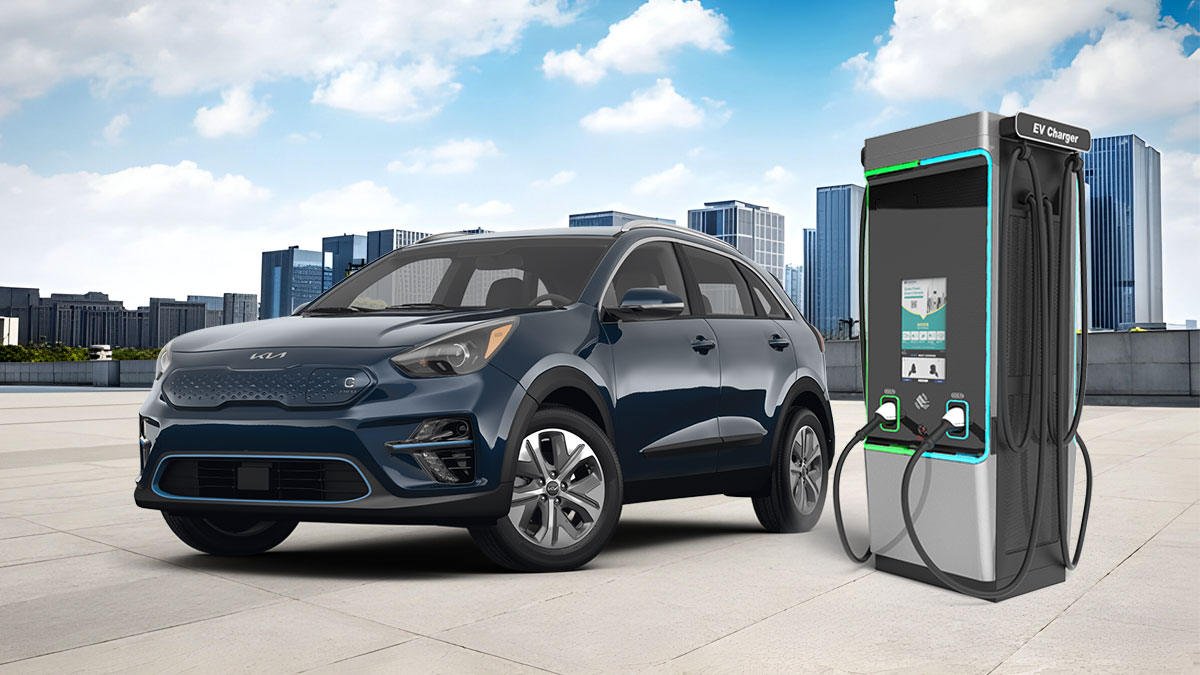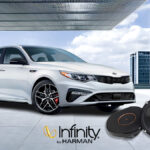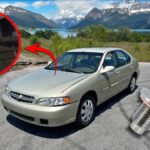If you own or are considering purchasing a Kia Niro electric vehicle, understanding how to charge Kia Niro electric vehicle is crucial for a seamless driving experience. Charging an electric vehicle (EV) may seem complicated, but with the right information, it’s straightforward and easy. This guide will walk you through the various charging options, costs, and tips to ensure you always have a charged battery.
Understanding the Basics of Charging a Kia Niro
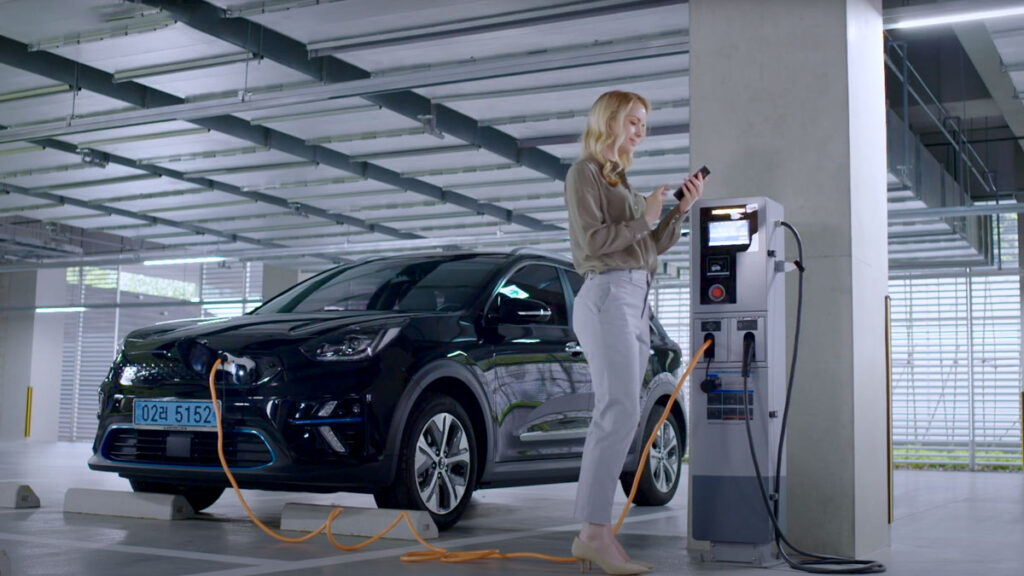
Before diving into the specific steps, it’s important to understand the basics of how to charge a Kia Niro electric vehicle. The Kia Niro EV is equipped with a lithium-ion polymer battery, and charging it can be done using different types of chargers. Each charger type offers different charging speeds and convenience levels.
Charging Options for the Kia Niro EV
There are three main types of chargers available for the Kia Niro EV:
- Level 1 (120-Volt Charger): This is the most basic type of charger and can be plugged into a standard household outlet. It’s best suited for overnight charging.
- Level 2 (240-Volt Charger): Faster than Level 1, this charger is commonly used at home or public charging stations. It requires a dedicated outlet or installation of a charging unit.
- DC Fast Charging (Level 3): This is the fastest charging option, usually available at public charging stations. It can charge your Kia Niro EV up to 80% in less than an hour.
How to Charge Kia Niro Electric Vehicle
Charging your Kia Niro EV is simple. Here’s a step-by-step guide on how to charge a Kia Niro electric vehicle using different types of chargers.
1. Charging at Home with a Level 1 Charger
The Level 1 charger is included with your Kia Niro EV purchase. Here’s how to use it:
- Locate the Charging Port: The charging port is located at the front of the vehicle, just below the Kia badge.
- Plug into a Standard Outlet: Plug the Level 1 charger into any standard 120-volt household outlet.
- Connect the Charger to the Vehicle: Insert the charging plug into the vehicle’s charging port. You’ll hear a click, indicating it’s securely connected.
- Monitor the Charging Status: The dashboard and charge indicator will display the charging status. It typically takes about 24 to 30 hours to fully charge the battery from empty using a Level 1 charger.
Cost: Charging at home with a Level 1 charger typically costs around $0.13 per kilowatt-hour (kWh) in the United States. For the Kia Niro EV, with a 64 kWh battery, this would cost about $8.32 for a full charge.
2. Charging at Home or Public Stations with a Level 2 Charger
Level 2 charging is much faster and is often used for home installations or at public charging stations.
- Install a Level 2 Charger at Home (Optional): You can have a Level 2 charger installed at home by a licensed electrician. This requires a 240-volt outlet.
- Locate a Public Charging Station: Use apps like PlugShare or ChargePoint to find nearby public Level 2 charging stations.
- Connect the Charger to the Vehicle: Just like with Level 1, plug the charger into the vehicle’s charging port. For public stations, follow the on-screen instructions to start charging.
- Monitor the Charging Progress: Level 2 charging typically takes about 9 to 10 hours to fully charge a Kia Niro EV from empty.
Cost: Installing a Level 2 charger at home can cost between $500 and $2,000, depending on the equipment and installation complexity. Public Level 2 charging stations may charge around $0.20 to $0.30 per kWh, translating to $12.80 to $19.20 for a full charge.
| Charging Level | Time to Full Charge | Cost per kWh | Cost for Full Charge |
|---|---|---|---|
| Level 1 | 24 to 30 hours | $0.13 | $8.32 |
| Level 2 | 9 to 10 hours | $0.20 to $0.30 | $12.80 to $19.20 |
| DC Fast Charger | 1 hour (80% charge) | $0.35 to $0.40 | $17.92 to $20.48 (80%) |
3. Using DC Fast Charging (Level 3)
DC Fast Charging is the quickest way to charge your Kia Niro EV, ideal for long trips or when you need a rapid charge.
- Find a DC Fast Charging Station: Use navigation systems or apps to locate a nearby DC Fast Charging station.
- Connect the DC Fast Charger: The DC Fast Charger has a larger plug. Insert it into the vehicle’s charging port until you hear a click.
- Start Charging: Most DC Fast Chargers start automatically, but some may require you to initiate the process using a card or app.
- Monitor the Charge: DC Fast Charging can charge your vehicle up to 80% in about an hour. Charging beyond 80% with DC Fast Charging slows down to protect the battery.
Cost: DC Fast Charging is more expensive, typically ranging from $0.35 to $0.40 per kWh. Charging up to 80% (about 51 kWh) would cost $17.92 to $20.48.
Factors Affecting Charging Time and Costs
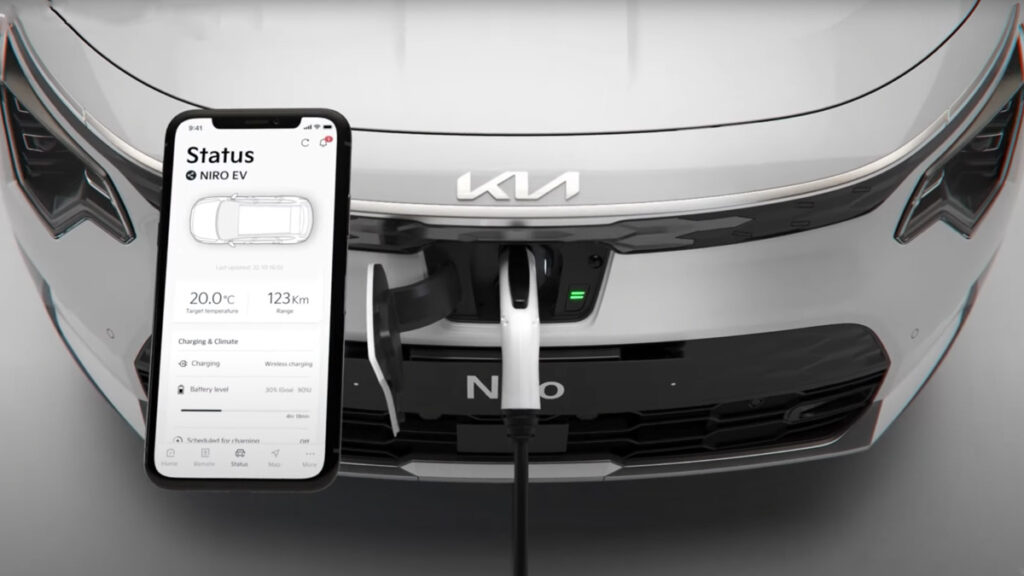
Several factors can influence how long it takes to charge your Kia Niro EV and how much it costs.
1. Battery State of Charge
- Empty to Full Charge: Charging from 0% to 100% takes the longest, especially with Level 1 or Level 2 chargers.
- Topping Off: Charging from 50% to 100% takes less time and uses less energy, which can be more cost-effective.
2. Temperature
- Cold Weather: Cold temperatures can slow down charging times because the battery needs to warm up before it can efficiently charge.
- Hot Weather: Extremely hot temperatures can also affect charging efficiency, potentially slowing down the process.
3. Charging Habits
- Frequent Top-offs: Regularly topping off your battery (e.g., charging from 50% to 80%) is quicker and may extend the battery’s lifespan.
- Deep Discharges: Letting the battery run down to nearly empty before charging can take more time and may be less efficient.
Understanding Charging Costs
Charging an EV like the Kia Niro is generally more affordable than refueling a gasoline vehicle. Here’s a breakdown of the costs you can expect when charging your Kia Niro EV.
Home Charging Costs
Charging your Kia Niro at home is the most economical option. The national average electricity cost is around $0.13 per kWh. With a 64 kWh battery, a full charge at home would cost approximately $8.32. If you drive about 250 miles per charge, that’s about $0.033 per mile.
Public Charging Costs
Public charging stations, especially Level 2 chargers, can vary in cost. They generally charge between $0.20 and $0.30 per kWh, meaning a full charge might cost $12.80 to $19.20. Fast chargers are more expensive, at around $0.35 to $0.40 per kWh, costing $17.92 to $20.48 for an 80% charge.
| Charging Location | Average Cost per kWh | Cost for Full Charge | Cost per Mile |
|---|---|---|---|
| Home | $0.13 | $8.32 | $0.033 |
| Public Level 2 | $0.20 to $0.30 | $12.80 to $19.20 | $0.051 to $0.077 |
| DC Fast Charger | $0.35 to $0.40 | $17.92 to $20.48 (80%) | $0.072 to $0.082 (80%) |
Where to Charge Your Kia Niro EV
Knowing where to charge your Kia Niro is just as important as knowing how to charge Kia Niro electric vehicle. Here’s where you can find charging stations.
1. Charging at Home
- Convenience: Charging at home is the most convenient option, especially if you have a garage or driveway.
- Installation: Consider installing a Level 2 charger for faster charging times. Installation costs range from $500 to $2,000.
2. Public Charging Stations
- Availability: Public charging stations are increasingly common, found at shopping centers, parking lots, and workplaces.
- Apps and Maps: Use apps like PlugShare, ChargePoint, or the Kia Charge App to locate nearby charging stations.
- Memberships: Some charging networks offer memberships that can lower the cost per kWh.
3. DC Fast Charging Stations
- For Long Trips: DC Fast Chargers are ideal for long trips or when you need a quick charge on the go.
- Network Coverage: Major highways and interstates often have DC Fast Charging stations, making it easier to plan long-distance trips.
Tip: Always check the availability of the charger before heading to a public station, especially DC Fast Chargers, as they can be in high demand.
Charging Tips for Kia Niro Owners
Maximizing the efficiency and lifespan of your Kia Niro EV’s battery can be achieved with a few simple tips.
1. Charge to 80% Regularly
- Why? Charging to 100% frequently can strain the battery over time. Keeping it at 80% for daily use is optimal.
- When to Charge to 100%: Reserve full charges for long trips where you need maximum range.
2. Avoid Extreme Temperatures
- Cold Weather: Park your car in a garage to avoid the battery getting too cold, which can slow down charging.
- Hot Weather: In extreme heat, try to charge your vehicle in a shaded or cool area to prevent battery overheating.
3. Use Scheduled Charging
- How? Set your Kia Niro EV to charge during off-peak hours to save money on electricity.
- Why? Many utilities offer lower rates at night, reducing your charging costs.
4. Monitor Battery Health
- Regular Checks: Use the vehicle’s onboard diagnostics or a mobile app to monitor the battery’s health and efficiency.
- Software Updates: Keep your car’s software updated to benefit from the latest battery management improvements.
Learning how to charge a Kia Niro electric vehicle is essential for any owner or potential buyer. Whether you’re charging at home or on the go, understanding the different charging options, associated costs, and best practices will help you maintain your vehicle’s battery life and enjoy a seamless driving experience. With these tips and insights, you’re now ready to keep your Kia Niro EV charged and road-ready at all times.



